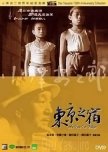
"Human beings have the best of times as kids who know nothing"
A desperate father traversed a dusty road outside of Tokyo searching for work during the Depression in An Inn in Tokyo. Ozu Yasujiro held back nothing in this his final extant silent film. Regardless of the lack of sound, this tender and tragic story of parents struggling to provide the basic necessities of life for their vulnerable children was emotionally compelling.Kihachi and his sons, Zenko and Shoko, carry their meager belongings in one small pack. Most days they must choose between eating or shelter. If they are lucky, they can turn stray dogs in for 40 yen. In a sprawling industrial complex, Kihachi is unable to get past the front guard to even apply for a job at one of the factories. He and his boys meet a widow and her young daughter who are in the same dire straits his family is, maybe worse. Otaka is looking for work, but as a woman, there are few available options. Late one night when Kihachi and the boys have nowhere to go but under an awning in the pouring rain, an old friend appears and takes the bedraggled family in. She helps Kihachi find a job and provides a room for them. Only a thin line stands between them and disaster or happiness.
This film was fairly realistic about the time of economic calamity. It was heartbreaking watching Kihachi and his sons mime eating their favorite meal and drinking sake on painfully empty stomachs. A father having to make the choice of whether to feed his children or provide shelter for them for the night was cruel. Zenko made a foolish choice of purchasing a hat with money he made that could have fed them. His father berated him but then turned around after being hired and spent money on sake. In the desolate fields, Kihachi and Otaka marveled at their children’s resiliency in an endearing moment as the kids developed an instant bond while playing. As Kihachi’s affection for Otaka grew, he assumed she would find respectable work as he did, though his good fortune was aided by an old friend and the benefit of being male. When tragedy inevitably struck both Otaka and Kihachi made devastating sacrifices. “Thus has a soul been saved.” Saved, maybe. But the future of the children was put into further emotional and financial jeopardy. Which further illustrated that people pushed to the edge of survival will do things that might seem immoral, especially when a parent is protecting a child.
Even though Ozu refused to have sound and spoken dialogue, the studio insisted on a musical score. The instrumental music was mournful and a touching addition. Dusty fields outside the factories provided a hopeless wasteland threatening to swallow the destitute wanderers made all the more surreal as children played among the industrial equipment. Sakamoto Takeshi as Kihachi, Aoki Tomio as Zenko, and Iida Choko as Otsune performed in numerous Ozu films and gave strong performances here. Ozu constant, Ryu Chishu, also made a brief appearance in a bit part.
Ozu painted a bleakly realistic picture of poverty and despair with moments of hope and sunshine often provided by the children. He also had his characters illustrate that despite the bleakness of their existence there were still opportunities for heartfelt kindness, laughter, and generosity. If you enjoy the films of Ozu Yasujiro or quality silent films, this is one to try.
5 April 2024
Was this review helpful to you?

"If you call me sister you have to be worthy of it"
I set the bar pretty low for these ultra short dramas, but Revenge of Royal Princess taxed my patience all while getting me to click on the next episode to see how the writers would dig themselves out of the hole they put themselves in. I’m still not sure that they did. There were a number of “what the what?” moments or times I thought I must have accidentally skipped some episodes.Li Yan Chu is the fierce princess who helped her hapless brother become emperor and fend off a coup. She saves the hostage Han Shu from execution and trains him to be her brother’s sharpest blade. Knowing she’s dying she plans her assassination to tie Han Shu tighter to the emperor. Instead of just becoming a bodyguard, somehow Han Shu is made a Regent and has a complete personality change. The deceased Li Yan Chu has her own transformation when magically her spirit inhabits the body of a murdered warrior who looks like her. Uh, what? She goes back seeking revenge and keeps her true identity a secret from both Han Shu and her brother.
Yan Chu was ruthless and treated Han Shu like a trained pet. Even as Xie Yu Gui, she offered him no kind words. All of her kindness was saved for her worthless brother. Han Shu’s temperament could cause whiplash with how quickly it could change. Aside from Yan Chu and Han Shu, there was also the Prime Minister seeking power and his conniving daughter with the most annoying voice seeking to be Han Shu’s wife. The acting ranged from adequate to please stop you are making my ears bleed. The story had a tendency to skip forward and around without any warning or logical consistency, even for a short drama trying to wedge as much story in as possible. There were many times I checked the episode number when my brain went, “Wait, what just happened?”
If you can handle the jumps in story and lapses in logic, there is entertainment to be had. This was a tale of ruthless people trying to outsmart and outruthless the others. If you are looking for romance or a sweet story, this ain’t it.
5 April 2024
Was this review helpful to you?
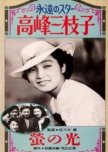
"We'll take a cup of kindness yet, for auld lang syne"
The title Hotaru no Hikari referred to the Japanese version of the song Auld Lang Syne. The film focused on two school girls in a tight group of friends just before and after graduation. Love, friendship, and broken hearts flowed freely as the young women tried to navigate their feelings and world outside.Sanae and Omie are close friends readying for graduation. Their lives have very different paths before them. Omie is a gifted pianist and going to Europe for further studies. Sanae is to be married to the bedridden son of the man who paid for her schooling and saved her father’s shop after an earthquake. Sanae is in love with Ariga, “The Prince”. When he asks her to marry him, she refuses without explaining. Distraught at a future without any brightness she goes to her friend Omie for help. Although Omie supports her, she excitedly mentions that Ariga is going to be accompanying her to Vienna. Broken at the news Sanae leaves but doesn’t return home. She makes her way to her “retired” teacher’s house where she helps with the farm work. Sanae may have stepped aside for her friend, but Ariga has other ideas. As the center of the friend group’s attention, Omie does not offer Sanae the same generosity in love.
This film took some effort to recognize the main characters. Initially, many of the students were introduced only to be sent to the sidelines. It did not help that Sanae and Omie/Ishii went by several names. The realities for women were stressed by parents and school authorities. Being a wife and mother was the only path to happiness for women. And women were to marry whoever their parents chose for them even if that person was an invalid. Director Sasaki dared to question some of those presumptions. Omie told Sanae, “Before being a daughter, we must think we are women first.” She also counseled her friend to not be afraid to leave her family and make a life for herself. Sanae boldly chose to do just that. The betrothed Sanae recognized her father’s actions for exactly what they were, “I was sold.”
Early in Japan's talkie era, HnH utilized sound with numerous sing-a-longs with the girls on their outings and in school. Omie demonstrated her ability on the piano several times as well. In the 1938 version of pop-ups, silent film intertitles and clips from Sanae’s diary often appeared to explain things to the audience. The diary pages revealed her innermost feelings and thoughts which I liked but some of the other written explanations would have been better acted out. The film was beautifully shot for the time with creative shots of scenery and buildings interspersed. Despite those appealing frames, time has not been kind to Sasaki's work with many scenes left quite blurry, often obscuring faces.
Also known as Auld Lang Syne or The Light of the Fireflies, Hotaru no Hikari was an interesting watch of young women breaking with tradition. My biggest complaint arose from the final act’s melodramatic noble idiocy. I had become invested in Sanae’s decisions and was quite aggrieved by the ending. This 1938 melodramatic story of friendship and love could have used a cup of kindness to ease the bitterness of the drink.
4/4/24
Was this review helpful to you?

"There are times when the right choice is not always the moral choice"
Tokyo Vice Season 2 started off where S1 ended with characters’ lives in jeopardy or completely snuffed out. With Tozawa in the wind, the drama took the time to explore other crimes in Tokyo and the private lives of the journalists. When the Dark Lord of the Underworld returned with a diabolical strategy to own Japan, the heroes would be put to the test. While not as taut as the previous season, S2 was still engaging.Due to serious threats against them, Jake and Katagiri are forced to lie low. Ishida draws Sato closer into his confidence after the attacks from S1 even as he makes a returning yakuza his second in command. When Sato’s brother is courted by the new Oyabun it leads a reluctant Sato on the path he had never wanted but cannot seem to escape. Samantha mourns the loss of her friend as she opens her new club. Having the yakuza for a business partner begins to take its toll. Things at the newspaper are going smoothly until Tozawa returns and our intrepid gang of journalists and police officers discover that neither the newspaper nor the police department are willing to take on the Dark Lord of the Underworld. When all seems lost an unexpected ally arises to bring help when they need it. The good guys will have to dirty their hands and cross lines that can’t be uncrossed if they want to bring Tozawa down.
The first few episodes took some readjustments in expectations after the powerful ending of S1. Having been credibly threatened by Tozawa, both Jake and Katagiri had to keep their investigations under the radar and focus on pursuing other stories and cases. The drama became more episodic procedural until Tozawa returned and upended everyone’s lives. The private lives of the journalists were explored which will be hit or miss determined by your interest in that angle. Even though little time had passed Jake was less titchy and agitated yet still arrogant enough to believe he was always right. His position at the paper seemed well established. Sam’s behavior was more empathetic for a girl on the hustle. Unchanged, Katagiri was a rock and the guy you wanted in your corner and not as your enemy. After the break in trust from the last season, Jake earned it back, with Katagiri stepping into a sensei or surrogate father role to the brash journalist. The two adrenaline junkies were dogged in their desire to expose Tozawa’s sinister plot. Emi came into her full power as she defied her supervisor in pursuing the risky stories. Her love life seemed to suspiciously follow Sarah's from Love Actually. Most of the sexism and racism from the first season were gone in the second. The rigid system of invisible rules and alliances stayed in place. Katagiri, Jake, and Emi would all make decisions to bring about justice that would have consequences.
Like Jake and Katagiri, I was impatient for Tozawa’s return. The malevolent yakuza drove the action in season 1 and in season 2 as well. When he was off-screen the characters were treading water unaware that the great white shark was biding his time, lulling them into a false sense of security before striking again. I enjoyed the growth in different characters as they were all propelled toward the culmination of deeds and revenge. There were lapses in continuity and logic when the heroes were in deep water swimming with the sharks. Despite those lapses, Tokyo Vice served up a deliciously satisfying ending.
4 April 2024
Was this review helpful to you?

"There's always a cause that results in consequence"
An Ancient Love Song may have been a low budget, shorter Cdrama, but longer, more expensive Cdramas could learn a lesson or two from it. The story was written well and the writers believed in the old adage, “Give them what they need, not what they want.”Shen Bu Yan is on a book tour touting his most recent title which covers the Demon Queen during the Nine Kingdom era. After an argument with his editor, he encounters an old woman selling trinkets to tie to an ancient wishing tree. He spots a broken jade pendant he’d seen in a dream the night before. Back at home his editor tells him he’s required to write a trilogy despite not having any more research for such books. A drop of blood touches the pendant from a nosebleed and he finds himself at the Great Sheng Palace in ye olden times. The Demon Queen is expecting him and the game is on.
I don’t know how this drama passed the censors and the “no time travel” edict, maybe Shen Bu Yan’s jade pendant dazzled them or there was enough standard warfare propaganda to appease them. Whatever the reason, I’m grateful. I’ve never seen Zhang Ya Qin in a lead role before and thought she played Lu Yuan well regardless of the character’s age. She brought Lu Yuan's patient love for Shen Bu Yan to life as well as Lu's determination to do the right thing. And a definite plus, she was no shrinking violet in a fight. Guo Jia Nan as Shen went from hapless fish out of water to strategist just as believably. The two had a nice chemistry despite the characters’ brief interludes throughout the story as each was traveling in different directions. I admire the writers for bringing the drama to a logical end, as logical as time travel dramas can be. Although no one seemed to be concerned about the Butterfly Effect.
Though not a big budget drama An Ancient Love Song was impossible for me to stop watching once I started. It took only the first episode to realize, one’s life and heart was set in “drive” and the other’s was in “reverse”. Forever in each other’s minds yet never quite together, it was a heart wrenching ride as they attempted to save each other and the kingdom, always hoping the next glimpse of the other would be forever.
3 April 2024
Was this review helpful to you?

Be careful what you wish for...
Fu Xiao Xiao makes a wish on her 15th birthday little knowing it would come true and how it would change her life forever. A.I. on the surface is a standard wish fulfillment story with the consequences that arise, but dig a little deeper and it might cause you to ask uncomfortable questions.Xiao Xiao lives with her divorced father who specializes in A.I. research. She leads a lonely life and is bullied at school. After her 15th birthday a new student arrives in her class and every day he follows her. At first she finds it annoying, but the desire for companionship drives her to accept the quietly adoring Su Xing Chen. By accident she discovers his secret and despite his difference accepts the boy who promises to be with her forever.
As I said, this is wish fulfillment-a boyfriend who will never betray her, never lie, never leave, never hurt her. As he slowly learns what it means to love, their relationship evolves, but never sexually. He also never ages which causes people to question their relationship. Eventually, Xiao Xiao wants more, wants to be normal, to be happy. She finds that normal and happy don’t always coincide, especially for a woman who has never had to learn to compromise and understand the work and wisdom a romantic relationship involves. *
The actors had a nice chemistry. What I enjoyed the most about this short film was the music. I don’t normally pay attention to the background tunes, but in this short film that almost played like a music video it was hard to ignore and easy on the ears.
If you can watch this bittersweet tale of love and acceptance on a superficial level, it is touching and sorrowful. If you choose to look deeper, you may discover questions that are troubling and go unanswered.
2 April 2024
*
*
*
*
*****************Spoilery Talk Below**************
Xiao Xiao’s emotional growth seemed stunted in regards to relationships. Her picker was definitely off as evidenced by the man she chose as a husband. With Xing Chen she could be selfish and only think of her own needs. She didn’t have to be kind because he was just a machine. And therein lies the problem I had with this short film. Xing Chen was a victim of his programming-to be with Xiao Xiao forever. He had no other purpose, no dreams, no desires of his own. Everything in his world revolved around her and her happiness, even as he began to evolve emotionally. The machine learned to love before she did and also learned a harsh lesson about heartbreak. Despite his growth, there was no freedom, no independence, which I found disturbing. This perfect boyfriend would never argue about taking out the trash or where to have dinner. Vacation in the mountains or at the beach? “Whatever you want dear.” Never even complain about being hidden away in a closet. This was tantamount to slavery more than love. Which also brings up the thorny question of the rights for sentient beings regardless of their form. I know, I know, I think too much. It’s a short film about how a human woman and an A.I. prototype develop a friendship and learn to love too late, and I should accept it at the surface value. Which I did, until I couldn’t.
Was this review helpful to you?
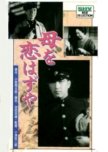
"One's life is so fragile"
A Mother Should be Loved is difficult to rate for it is lacking the first and last reels of film. Ozu Yasujiro’s film still has compelling moments amid the melodrama of a son discovering his mother is not his biological mother, but his stepmother after his father dies.At breakfast before school, Sadao and Kosaku’s father has promised to take them to the beach on Sunday. While the boys are at school, word comes that they must return home for something has happened to their father. Sometime after the funeral, the father’s old school friend visits the mother, Chieko, and asks her to continue to raise Sadao as her own even though he was the child of the father’s first wife who died. Chieko loves the boy and says there was never a question she would and has no intention of telling Sadao she’s not his mom. Trouble comes a few years later when Sadao applies for college and sees on his birth certificate that Chieko is not actually his birth mother.
The film is a tad melodramatic for Ozu, though he wasn’t afraid to dip his toe into the sea of tears. At one point I wondered if it was a melodrama or murder mystery as characters died off. But external conflict was not something Ozu used much. This was once again a look at a family being torn apart and whether the characters had the resiliency to bounce back and forge something better. Ozu originally wanted the title to be Tokyo Twilight but the studio insisted on having mother in the title. That makes sense when you watch this movie, the mother was more of a passive character, the focus was not on her, but on Sadao and his inner turmoil. Burdened by guilt and resentment he both lashed out at Chieko and tried to repair the relationship between her and Kosaku.
Ozu’s detailed compositions were quite apparent in this film along with his filming from the mat. Characters didn’t stare directly into the camera as they later would but at each other. Because of the hurt and anger felt by characters, there were also shots from the back incorporated into some scenes. I didn’t think the loss of the first reel hurt the story much though it might have showed the relationship the boys had with their father. The editing and time skips were what I found jarring. Right after the boys have found out their father has died, there’s a scene with them at the dinner table smiling and having a good time. It seemed incongruous with the solemn scene of them walking home from school with their heads down. Occasionally, Ozu gives us tips that time has passed but it’s difficult to tell how much. “Uncle” Ozaki showed up so often and so casually that I thought maybe he and the mother had married. The boys even mentioned him acting as their father, especially when Ozaki told Sadao all that Chieko had done for him and how much she loved him. The final reel was a loss, but at least due to a script still existing, the intertitles explained how the familial conflict was resolved.
Ozu has said the reason he remembered this film so well was because his own father died during the filming. He would go on to live with his mother for the rest of her life, a bachelor and childless. The mother in this film was trying to do the right thing. She loved Sadao as her own child and didn’t want to lose him simply because he wasn’t born from her body. She may have made mistakes but they were from love. Sibling rivalry has difficulty seeing those nuances, instead only seeing favoritism or supposed lack of attention. Both boys saw the other one as favored, the one who was never scolded and the one who was. In this film, Chieko deserved to be loved as she poured her heart into both her boys even when they broke it.
1 April 2024
Was this review helpful to you?

"You've gone too far!" "We'll go further!"
The Shaolin Kids had neither kids nor anything Shaolin in it. For a 1970’s Taiwanese martial arts flick it had a larger budget and cast than usual. While the sets may have been more primo, the unwieldy cast and convoluted plot made it difficult to slog through at times.Prime Minister Hu Wei Yung is plotting to overthrow the emperor and has a message for his allies detailing his treacherous plan. He’s been eliminating opponents by various methods, most recently by poisoning Liu Hsin Erh’s father. She’s looking for payback but General Lu stops her. Lu is part of a group aware of Hu’s duplicity and is working to bring him down. Liu manages to get her hands on the secret message, but from there the list has a rocky passage on the way to the Imperial Court.
Shaolin Kids had a strong cast. Polly Shang Kuan Ling Feng played the avenging daughter. Tien “Roc” Peng and Chang Yi played son and father, although both were born in the same year! Carter Wong, in a really bad wig, had a supporting role as one of those loyal to the emperor. He appeared and disappeared throughout the movie. One look at the cast list and it was apparent who was going to be the Big Bad, Yi Yuan had no problem playing the rebellious prime minister.
Generally, the fights were routine, utilizing swords as well as fists and kicks. Polly is always entertaining but the fights weren’t exceptional. The most interesting pairing was the Cliff Lok and Huang Fei Long “Light and Dark” evil duo. The two had their secret move of “Heaven and Earth” where one went high and the other attacked low. The heroes who fell prey to it had never learned to duck or side step to their detriment. Chang Yi and Carter Wong didn’t have much to do but managed to make their fights with the evil duo more entertaining than some of the other combatants. Tien Peng seemed to be an afterthought both in fights and plot.
The Shaolin Kids suffered from poor editing and transitions in narrative as well as a ridiculous title. There was a lack of focus and clarity in the storytelling and the fights weren’t much better. This film wasn’t bad, it was just underwhelming.
29 March 2024
Was this review helpful to you?
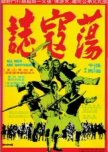
Along the lines of “I heard there was a secret chord that David played and it pleased the Lord,” David Chiang’s character plays a tune for the Emperor of Song. The emperor is so taken with his music that he declares he will pardon the Heroes of Liangshan if they can destroy the rebel Emperor Fang La. The heroes begin their quest with great success but also at a great cost. Finally, all that is left is to breach Fang’s fortress walls and bring him down. After a failed attempt, a Fellowship of the Sword is assembled with Yan Qing, Black Whirlwind, Tattooed Dragon, Fearless One, White Stripe, Sun Er Niang, and Zhang Qing. The seven heroes enter the fortress in order to spy on their enemy and determine how to help the Liangshan army get through the gates. Black Whirlwind, whose heart is bigger than his brain, starts a domino effect that results in tragedy.
As short as The Water Margin was on action and death, All Men Are Brothers was long. The film kept the swordplay coming though it began to follow a repetitive and predictable pattern. The same four fight choreographers worked on this film-Tang Chia, Lau Kar Leung, Lau Kar Wing, and Chan Chuen. The fights were much better in this film, at least most of them. David Chiang’s wrestling moves still made very little sense to me. Chen Kuan Tai’s fight used a variety of weapons and moves and as usual, he knew how to sell them. Bolo made an appearance as an evil general decked out in a leopard caveman shirt. Poor Black Whirlwind learned the lesson, “never play another man’s game” too late during their fight. There was also a fight in deep water with swimmers against warriors with spears in boats that appeared inherently dangerous for those involved.
Fan Mei Sheng dominated every scene he was in with his enthusiasm. He all but said, “Hulk smash!” as he gleefully swung his axes in battle. Chen Kuan Tai was able to join the fun in this film after being sidelined in the last, just like Danny Lee. Ti Lung still had very little to do until the end and was still in that awful wig. Though they kept trying to focus on David Chiang’s character, I found his performance uninteresting. The last two of the seven were bland and barely registered though I was happy a woman made the team. Ku Feng once again played Welcome Rain, a leader who felt the loss of each warrior serving under him.
The sets were enormous for the keep, though not as intricately designed as The Water Margin’s sets, it was above and beyond normal SB fare. Shaw Tower, the famous pagoda, made a cameo appearance in this film for an early battle. Once again, the cast of extras was quite numerous. Thankfully, the awful contemporary music from the first film was replaced with a more organic sound. The ‘chicka-chicka-chow’ Shaft effect was still used around David Chiang’s character though.
All Men Are Brothers lacked the subtlety of its predecessor with bodies covered in #2 red finger paint and dropping like flies. Perhaps it was more realistic to paint the cost of war in blood. Or it could have just been Chang Cheh being Chang Cheh. As always, I grade these older niche films on a curve.
28 March 2024
Was this review helpful to you?
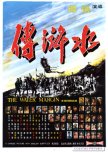
When Brother Chao is killed by The Golden Spear, the Liangshan gang of righteous outlaws vows revenge. The only problem, Shi Wen Gong is too tough for any of their fighters to confidently defeat. Timely Rain decides they should call upon the Jade Unicorn and The Prodigy to take him down. Two of the members attempt to trick Lu Chun I into helping them but he sees through them with the aid of Yen Ching. Before he can send the two outlaws home, his adulterous wife and her lover set him up with the corrupt Grand Secretary Liang. While everyone escapes, Lu is captured. The Heroes of Liangshan won’t abandon an honorable man who is suffering because of them and the race is on to save his life before he is executed.
This synopsis sounds interesting and it was once the story got rolling, but it was a tediously slow start. The movie spent 12 minutes briefly introducing characters-27 of them! But that’s not all! The introductions kept going. I counted 46 actors introduced as important characters. It could make the mind reel, especially since most of the heroes don’t show up again until briefly at the end for the final fight. Despite the number of characters, the primary focus was on Lu and Yen Ching. Welcome/Timely Rain, Clever Star, Black Whirlwind, and the Fearless One were also integral to the story. Leopard Man/Lin Chong had fights at the beginning and end of the movie.
David Chiang as The Prodigy was an interesting choice. He has legions of fans, I have just never warmed up to him much in these old films. His fights were underwhelming. Yen Ching’s ability meant he barely touched men and they flipped through the air which seemed odd coming from such a slight actor. The stuntmen earned their money twirling and flopping from what looked like imaginary contact at times. Tamba Tetsuro was far more intimidating as the Jade Unicorn. Ku Feng as Timely Rain was truly welcome for me, he’s one of my favorites. Wang Chung threw himself into the energetic role of Fearless. The final fight pitted five of the heroes and their different styles against five of Shi Wen Gong’s men. The two Japanese actors, Tamba Tetsuro and Kurosawa Toshio also had their chance to face off. For 1972, the fights weren’t bad. Some were clearly better than others and more realistically gory.
Shaw Brothers opened up their check book for this film. The cast of stars may have been large but the cast of extras involved was huge. There were three directors and two assistants (John Woo and Godfrey Ho) along with four fight choreographers.
The sets were massive and the costumes were unique for the different characters although poor Ti Lung had a laughably bad outfit and wig. The biggest drawback for me was the soundtrack. It was wildly anachronistic, synthetic music sounding like it came off of a 1970’s US cop show with hints of Shaft and Clint Eastwood westerns thrown in. Somehow if didn’t match up to this ancient story. And story is what this movie had going for it once it actually started. Unlike the hundreds of thinly plotted kung fu films churned out by Shaw Brothers and Golden Harvest, Water Margin had layers of story within it. There were times it could be repetitive, the Jade Unicorn was rescued and captured several times and the Heroes of Liangshan weren’t always well coordinated in their efforts which nearly led to tragic events. It also seemed pointless to spend so much time introducing the heroes when most of them were never seen again or only briefly at the end of the movie.
If you go into The Water Margin with the understanding that most of the characters in the lengthy introduction will have little to no screen time, it will help. The focus was on Lu being wrongfully charged with a crime and the efforts to clear or rescue him with the revenge against Shi served up for dessert. Though this was epic for a Shaw Brothers production, it will still only be of interest to fans of old martial arts movies or maybe those fans of the novel.
28 March 2024
Was this review helpful to you?
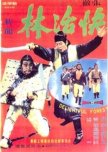
Day drinking with The Tiger Killer
The Delightful Forest is one of the Shaw Brothers films that has been restored and it looked good. Shaw Brothers put forth the money for nice sets and costumes. Ti Lung was young and athletic, always a plus. So why waste Ti, watching him drink and eat more than fight? Apparently, the movie did follow the book, The Water Margin, regarding this part of the Tiger Killer’s life, so maybe that’s what the legendary strong man spent his time doing. I'll leave it to the readers to decide.Legendary Wu Sung who killed a tiger with his bare hands comes to town with blood in his eye after discovering his sister-in-law and her lover murdered his brother. In quick order he kills the murderers and turns himself in. On the way to prison he fights The Witch who owns an inn and then becomes sworn brothers with her shirtless husband. At the prison, the chief warden’s son has plans for him. Golden Eye wants Wu to defeat Jiang Zhong who has taken over The Delightful Forest, a village of inns, brothels, and casinos that had been paying Golden Eye tribute. What Wu will find out is that Jiang has powerful friends who also want control of the Delightful Forest.
“When people are drunk, the world and time don’t exist”
Ti Lung seemed to be having a lot of fun playing the cocky, heavy drinking, and heavy hitting Hero Wu. I’ve never seen him so light-hearted in a film. Wu drank on the way to prison, he drank in prison, and he stopped at the 12 places on the way to fight Jiang to drink 3 large bowls of wine at each. He drank heavily at the bad guy’s lair. This wasn’t even drunken kung fu fist, apparently the booze powered him up even when he wasn’t fighting. However, like Sampson, he stupidly told the bad guy the secret to beating him.
There were few significant fights and most were over quickly. The rest of the time Wu spent eating and drinking. It took 52 minutes before Wu had drunk enough to meet Jiang in a quick battle in the town center. One of my favorite fight choreographers, Lau Kar Leung was one of four on this film. There didn’t seem to be enough fights to warrant that amount, but Tang Chia, Lau Kar Wing, and Chan Chuen all contributed. Some of the most impressive fights were the ones with Ti Lung wearing a cangue. Even if it was made out of Styrofoam or a lightweight material, the awkwardness of it seemed like it could have been highly problematic to work around and not get injured engaging with various stuntmen. Right before one of these fights they showed Shaw Tower, the pagoda Cheng Pei Pei had to climb in Lady Hermit (1971). The pagoda made cameos in many SB films and I’m always on the lookout for it. The final rampage was impressive but lasted all of 9 minutes and there were some serious editing issues with it. This was a Chang Cheh film which meant there were buckets of blood in those final minutes.
If you want to see the live action version of this part of Wu Sung’s life you might really enjoy this. I felt like the only sober person at the party. Wu Sung’s drinking just wasn’t very interesting to me. When they finally let Ti Lung loose, the fights were good and he was quite charismatic. The Delightful Forest falls in the slightly below average category for me from this time period and genre, more like the Drunken Forest.
27 March 2024
Was this review helpful to you?

"When you think you're safe is precisely when you're most vulnerable"
Seven Samurai is not just a movie about fighting samurai, this film calls out the injustices prevailed on the common people by the warring ruling classes and class delineations. Kurosawa’s 3 ½ hour film would appear to be too long, and truthfully on previous viewings, I felt that way. But this time having learned to be comfortable with his world and character building, I settled in and watched as he wove a complex story out of a simple one. Kurosawa is a master at teaching and rewarding patience.“You all make great scarecrows. Problem is, the enemy isn’t a bunch of sparrows and crows.”
A small village of peasants whose crops are routinely plundered by the local bandits make a desperate all-in decision. Rather than risk starving and losing their women to the thieves they determine to find samurai hungry enough to protect them for food but not so strong as to be a more dangerous alternative than the bandits. Kambei is recruited first after he rescues a small child from a thief. From there Kambei puts together a team of six willing samurai. A seventh “samurai” refuses to be dismissed and follows them anyway. Kikuchiyo will prove vitally important as a link to the farmers. Kambei develops a plan to protect the village from 40 bandits on horses and armed with muskets with only seven warriors and untrained villagers with bamboo spears. Though the odds are not in their favor this new team of uneasy allies does not back down.
“In life, one finds friends in the strangest places”
The story occurred in one of Kurosawa’s favorite settings, the Sengoku period during the 16th century. While the classes were separated, there was still miniscule room for movement. At the same time, there was a belief that poverty and suffering was the fate for peasants and many of the samurai interviewed refused to help them. There was no reward, no chance for glory or increased rank, no lord to serve. Only those who enjoyed battle or were hungry or had sympathy for the peasants were willing to join.
“Who turned the farmers into such monsters?”
Civil wars had been devastating for the peasants who always have the smallest of safety nets in any time period. For these farmers, the samurai were not much different than the bandits. In a key scene, brilliantly played by Mifune Toshiro, Kikuchiyo upbraided the six when they were horrified to discover armor the farmers had stolen or killed fleeing samurai for. He quickly put things in perspective. Samurai murdered, pillaged, raped, and burned just as the bandits did only under the guise of “honorable” warfare, the end was the same for the farmers. Inviting samurai into their village could be the same result as bringing a tiger to the front door to chase wolves out the back. Someone always coveted the valuable rice and barley the farmers grew. Powerless farmers were left with little to barter with except their women and their lives keeping them in a perpetual state of fear.
“By protecting others, you save yourself”
Samurai Heihachi designed a flag displaying the growing cooperation between the disparate groups. Kambei and Kikuchiyo along with the other samurai and lead peasants forged a transformation of societal boundaries. The two sides slowly learned to trust each other building something new and important. But would it last?
“There’s nothing heroic about selfishly grabbing for glory”
Kurosawa regular Shimura Takashi played Kambei Shimada, the leader of the samurai. This is by far my favorite role of his despite loving Ikiru. Shimura was calm, wise, wily, and also had a sense of humor. He owned every scene he was in and it was quite believable that he instilled confidence and commanded respect from both samurai and villager. His performance was brilliant as the leader who eschewed the need for glory and demanded complete selflessness. Another Kurosawa regular, Mifune Toshiro, and one of my favorite actors, played the slightly and sometimes not so slightly, unhinged Kikuchiyo. It was a role similar to the one he played in Rashomon. Overflowing with kinetic energy and emotion, he never stepped out of character, never reverted to the ultra-cool samurai he was capable of playing. Kimuro Isao as the youngest samurai, Katsushiro, displayed the awe of the men around him and the fear of first battle and first love. The other samurai were capably played and carefully developed as individual characters instead of bland backdrops. Even several peasants were highlighted.
“I defended my post”
Using his three-camera technique for the first time, Kurosawa blended the action to convey the tension of death and battle. His customary blowing dust skittered across the scenes as moods changed. While there was emotional music, his most successful background sounds for me were the beating drums of war approaching even as songbirds sang and flowers bloomed. As the rain fell during the final battle, it was hard to distinguish samurai from peasant. Side by side they fought viciously and heroically regardless of the consequences, regardless of rank, regardless of whether they or their alliance survived. Seven Samurai fought not only bandits but distrust and social injustice with only one side in the triangle of power capable of winning. If you can let Kurosawa slowly envelope you in this world he created with good and evil and every shade of gray in between you’ll be rewarded with a captivating film superbly made.
27 March 2024
Was this review helpful to you?

Sgt. Chan Ga Kui is part of a sting operation on drug cartels having a meeting in a shanty town. They are particularly after Boss Koo and his gang. After destroying most of the squatters’ village, and a spectacular rundown of an escaping bus, Chan slaps the cuffs on Koo and becomes a local hero and is used for recruitment. Superintendent Li decides to use Koo’s secretary, Salina Fong, as a witness, which puts her life in jeopardy. Chan is ordered to be her bodyguard. From then on, the case and Chan’s life take a turn for the worse.
I enjoyed the first third of this film and the last third. The middle third dragged badly for me. There was a long “comedic” scene with his girlfriend. A painfully bad trial scene. And then another comedic scene where a woman who had been raped and a woman who was being beaten by her husband were completely ignored during a phone gag. I also had to remind myself that the beautiful and talented Maggie Cheung was paying her dues in the thankless, idiotic girlfriend role.
The stunts were phenomenal for the time. The umbrella and bus stunt, numerous fights involving sugar glass, and the final stunt with Chan in a mall sliding down a tall pole surrounded by draping lights were leaps and bounds beyond the status quo in 1985. They were also inherently dangerous. Chan was injured twice during filming. Brigitte Lin even stepped up and was thrown through a table and also a plate glass window. Few movies unless they were filmed in a glass factory would have more people shattering glass with their bodies. Proof also that movie glass is magical as no characters were badly cut despite all the bodies bouncing off the huge panes and shattered pieces of translucent blades.
Police Story broke new ground for fighting and action stunts even though the story did not. Chan’s athleticism and flexibility was a thing of wonder. My rating is based on the astonishing stunts at the beginning and ending of the film and also on my pre-1990’s grading curve.
25 March 2024
Was this review helpful to you?
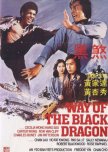
“It’s better in the Bahamas”
Way of the Black Dragon was the tale of two different movies spliced into one. The first half was a sleazy sexploitation story about two women kidnapped for hazy reasons and used as drug mules and sold into sex trafficking. In the second half the Black Dragon, Carter Wong, and an unknown Hong Kong actor showed up to try and rescue the women.This is the type of movie you could fast forward through the first half and miss almost nothing except the degradation of women for sport. I suffered through it so that I could write a review. It starts in Thailand where Allison and friend are kidnapped, forced to be drug mules on a plane to Hong Kong, sold into prostitution, some were murdered, etc. Around the halfway mark, Allison ends up being sold as a wife to Carter Wong. This lasts about 5 minutes. She tells him what happened and he vows to take the syndicate down. At the same time, Special Agent Bill Eaton aka the Black Dragon, an Interpol agent, discovers the trafficking and takes Allison back to Thailand where she is once again kidnapped. Carter, Allison’s brother, and The Black Dragon team up to take down the bad guys with lots of poorly shot car chases, motorcycle chases, and water chases.
The second half of the movie which was completely different in temperament might have been saved with great fight choreography, but the fights were generally poorly planned and underwhelming. Ron Van Clief had quick and powerful kicks and moves at times and at others were ridiculously let down by the slow, awkward choreography. He was entertaining to watch but the movie around him was a dumpster fire. Carter Wong didn’t have much to do other than get thrown into the deep end of the story without much motivation. I’m not sure who played Allison’s brother, I couldn’t find a listing. I’ve seen Hsiao Ho mentioned, and he was in the movie as one of the thugs, but not as the brother. The women were all but forgotten by the end of the movie.
The Way of the Black Dragon had choppy editing, an abysmal story, uninspired fights, and bad acting even for a kung fu movie. At one point Van Clief wears a t-shirt that says “It’s better in the Bahamas”. It would have to be, it couldn’t be any worse than this. Unless you are a completionist and want to finish The Black Dragon trilogy, I’d suggest skipping this one.
24 March 2024
Was this review helpful to you?

"My king, don't overdo!"
The Greatest Plot was a surprisingly well made 1977 Taiwanese kung fu film. So many of the films made in Taiwan were filmed outside and/or in the dark as if they didn’t have a permit for filming. The stories could also be notoriously threadbare. Though it boasted to have the greatest plot, it might have been exaggerating. This film did however attempt to take a deeper dive into the story rather than leaning on the tried and true secret list or book themes.When the Emperor dies Prince Yung Zhen is named the new leader much to the surprise and chagrin of all. He promises his buddies, The Eight Knights, that being Emperor won’t go to his head, he will still be their friend. Oh, by the way, could they please protect him when he took power? After being crowned, the eight are treated to a feast which includes poison and flaming arrows. The few who survive regroup with their sifu and plan to take the duplicitous tyrant down. Marshal Nien who had dutifully served the Emperor also discovered how much his loyalty was worth. Other than the typical guards which would be problematic to overcome, the heroes would have to survive the deadly traps and weapons hidden in the Emperor’s palace.
Aside from the story of good vs evil, characters went mad, and vengeful “ghosts” returned for retribution. The randy Emperor was often implored by his aids, “My king, don’t overdo!” Which came across pretty funny. The major drawback to the writing was that The Eight Knights were not fleshed or well differentiated. Hsu Feng was the only one who had any lines for the most part. Not the movie makers fault, but also causing me confusion was that the only copy I could find available had atrocious dubbing and subs. On a positive note, I was pleased that in 1977 Hsu Feng was allowed to be the primary hero of the film, many of the martial arts films during this time had fewer and fewer capable women in them.
Of the Taiwanese martial arts films I’ve watched, The Greatest Plot had some of the most luxurious costumes. There were also the requisite cheesy outfits. One of the “Dalai Lama’s” men wore a one shouldered leopard wrestling singlet. Though there weren’t many indoor sets those used were of a higher class than usual. Hsu Feng had the ability to be a beautiful warrior who could throw fear into the eyes of her enemy. Lo Lieh as the Martial gave a nicely nuanced performance of a man who could not believe his friend was not who he thought he was. For me, Yueh Hua always made a better villain than hero and he had no problem playing the treacherous and horny emperor.
The fights were well choreographed, though some were shot in the dark and almost impossible to make out. While the main three of the cast were more actors than martial artists, they all moved gracefully and believably. There was a wide assortment of kooky kung fu weapons. The razor bladed shield made an appearance with the ability to turn into a guillotine as well. The world’s largest possessed Roomba took out several characters with its protruding spears and ability to fire spears. Maybe ancient China had AI to guide the projectiles or maybe it really was possessed. Pretty sure it ate one guy, too. The mop up attachment would be needed after the mess it made. Swinging poles imbedded with blades made it hard for the heroes who weren’t cleaned up by the swirling spears of death to not end up Shish Kebabed.
The Greatest Plot was far from it, but for a martial arts movie, it did try to go a more Shakespearean route instead of the lowest common denominator one. A strong cast helped to cover over the lack of character development and plot holes. Definitely only for fans of old martial arts movies and who can tolerate a film in need of restoration. Rated on a curve.
21 March 2024
Was this review helpful to you?

 31
31 98
98 7
7





















